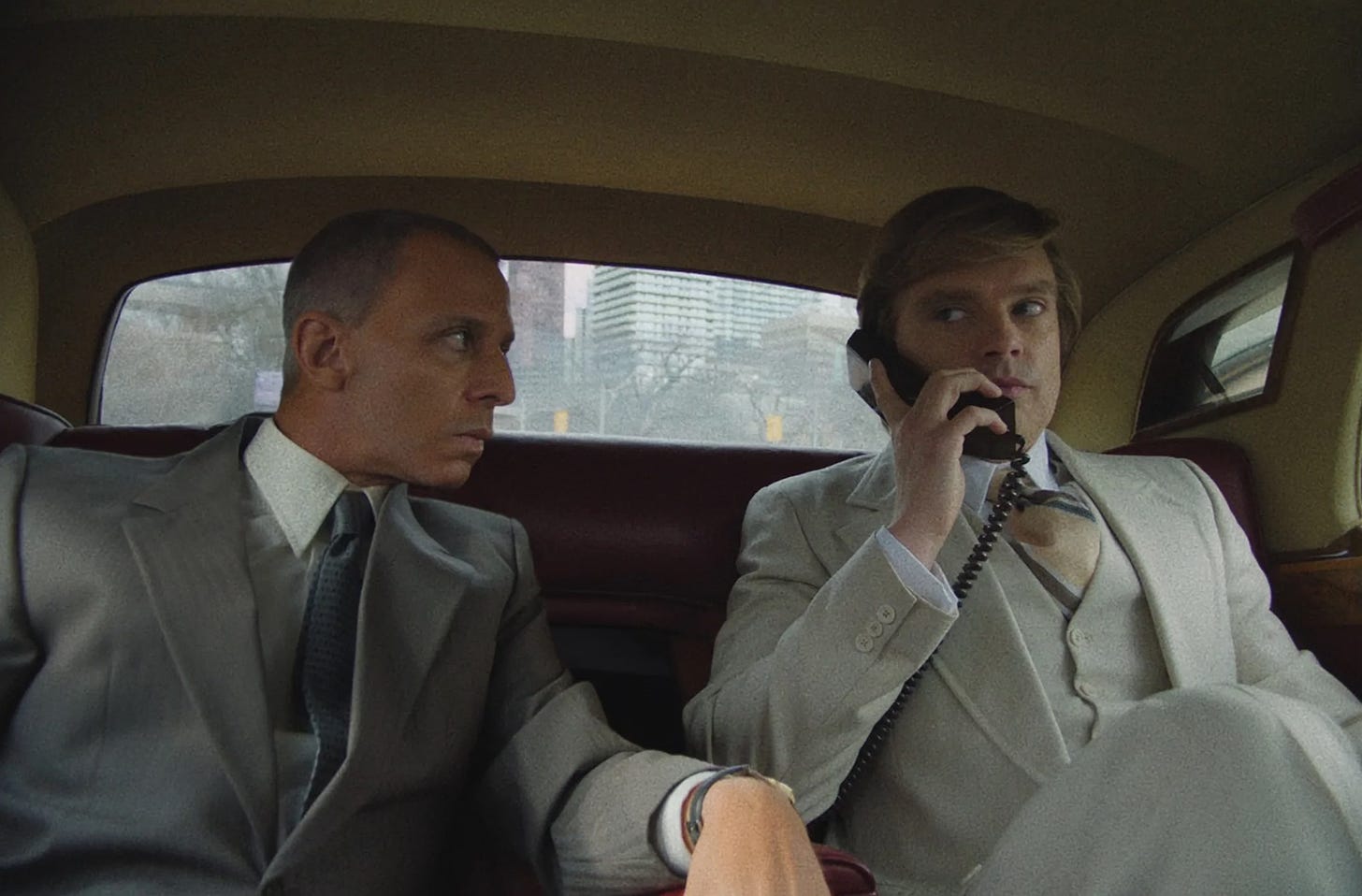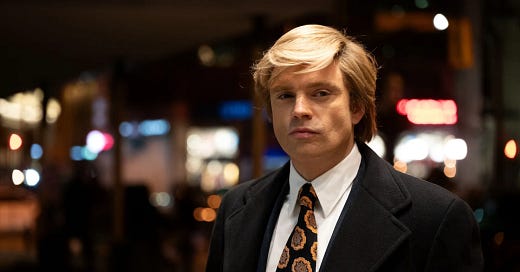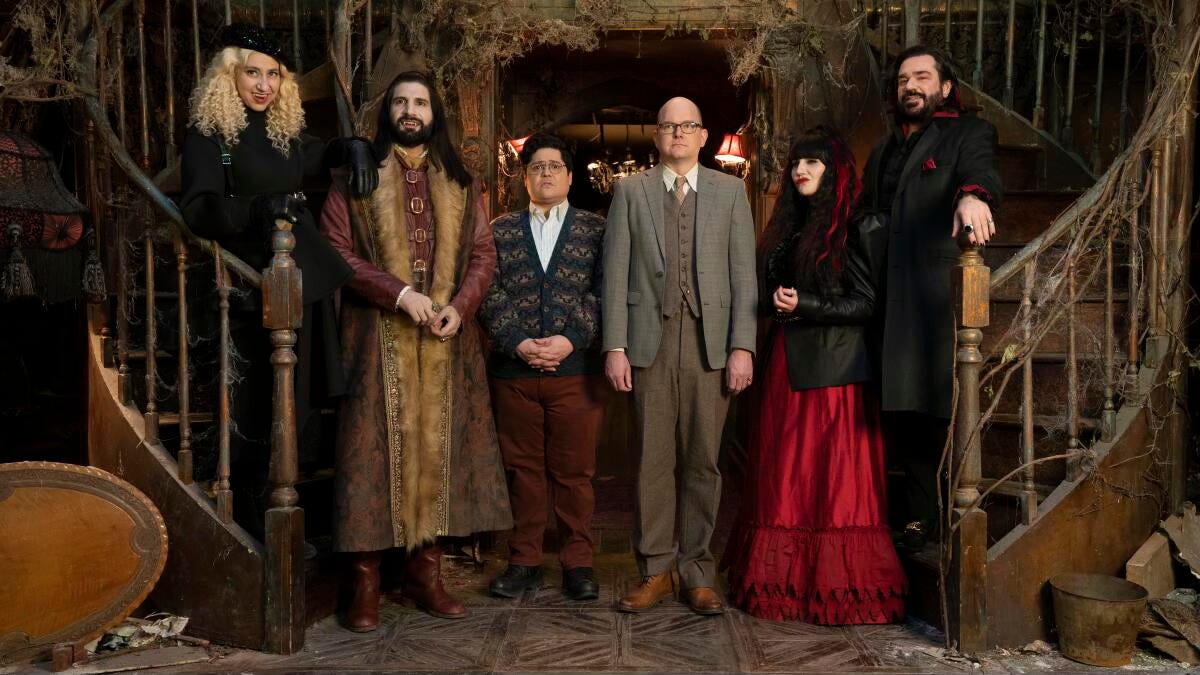How 'The Apprentice' Presents a Common Misconception about Donald Trump
The continuing misadventures of a one-dimensional character.
One of the maddening things about having Donald Trump as a major character in American life for the past nine years is that he is not that interesting. It was easy to laugh at him in 2015 and 2016 because he was a cartoonish buffoon. He was a D-list celebrity who served as an easy shorthand for garish, stupid wealth. Even within the confines of the reality series The Apprentice, which gave the Trump Organization a major facelift to sell the fiction that working for Trump would be the equivalent of a million-dollar prize, he was still a simple character. He was a rich guy who wanted to let you know how rich he was, and being so tacky made for entertaining television.
But after nine years of this character, it’s easy to see why The Apprentice’s ratings declined year after year (by comparison, its contemporary reality competition shows like Survivor and The Bachelor still enjoy steady audiences despite overall ratings decline for network television). There’s no depth to Donald Trump; the more you learn about him, the less interesting he becomes. And yet, because he’s made himself the center of our politics, it’s easy to fall into the trap that there must be something about him rather than our politics that’s worth investigating. Ali Abbasi’s new film The Apprentice focuses on how notorious lawyer Roy Cohn (Jeremy Strong) shaped Donald Trump (Sebastian Stan), but without any larger framework for these two characters. In Abbasi’s telling, Trump was an ambitious but empty vessel into which Cohn poured his ruthlessness and malice to create the Trump we know today.

Even if you take the film at face value, that’s not a particularly interesting story because there’s no tragedy here. It would be one thing if Trump was a good guy who was twisted by the dark side, but thankfully, Abbasi never asks us to believe anything so far-fetched. However, it does gently imply that since Fred Trump (Martin Donovan) was a distant and callous father, it opened the door for Cohn to play that role in young Trump’s life. But even in this telling, the difference isn’t that important. Following his father, Trump would have been a racist slumlord, and following Cohn, Trump became a racist real estate magnate. Cohn’s lessons and connections helped make Trump more money (which he promptly lost anyway because he only knows how to function as a D-list celebrity rather than understanding the finer points of running any business), but the only real tension here is what kind of dirtbag Trump will become, which isn’t all that interesting.
The dramatic weight belongs to Cohn, a seeming mess of contradictions who feeds all his malice and nihilism into Trump only to see it blowback against him (ah, who could have foreseen). Unfortunately, The Apprentice isn’t particularly interested in Cohn’s downfall; it only wants to follow Trump’s rise. This means there’s no connective tissue between the hard-charging, powerful Cohn of the first act and the one who can no longer control his protégé. The movie briefly implies that financial misfortunes and becoming HIV-positive siphoned Cohn’s strength, but there’s little on how all of Cohn’s cruelty and jockeying for power amounted to nothing more than loneliness and estrangement (it doesn’t help that Cohn’s downfall was already perfectly rendered in Tony Kushner’s Pulitzer Prize-winning drama Angels in America, so there’s nowhere new for The Apprentice to go with the character).
By shuffling Cohn to the side and focusing on Trump, all that’s left is a largely uninteresting litany of Trump’s growing venality and arrogance. It’s a character who looms large because of our current politics but who can’t help but show how small he is at every turn. His biggest ideas are “I want a tall building with my name on it” and “I want successful casinos in Atlantic City.” These are not Earth-shattering notions; they’re what you would expect from a rich doofus with a constant need for attention. There is a breadth to Trump’s presence in American life, which The Apprentice captures as it follows Trump across the 1970s and 80s, but there is no depth. There is nothing else to know about this man that you haven’t already picked up, even in passing news coverage. He is exactly who he appears to be.
It’s far better to look at Trump as a symptom of larger cultural forces rather than a transformative figure. Seeing him on the periphery of a film like Armageddon Time or in the miniseries When They See Us tells us far more about how wealth and privilege function in America rather than the grotesque mannerisms of this particular spoiled brat. I too wish the wealthy failsons of America yielded more interesting portraits, but they don’t. You can’t reveal what’s already in the open.
What I’m Watching
We finished catching up on What We Do in the Shadows, and while season five certainly gets stranger than the previous four, it’s a strong show throughout that balances its dark comedy with characters you care about and who care about each other. The final season premieres on October 21st, and I’m glad they’re going out while the writing is still strong. While we can bemoan the shorter runs of shows in the streaming era, I have to admit it’s a nice change of pace from the network model where you keep a successful show on the air until the wheels fall off.
Also, after catching up, my hot take is that while “On the Run” (aka the Jackie Daytona episode) is quite good, it is not the best episode as Rolling Stone claimed. I think the best episodes are when you have the whole gang bouncing off each other, so I prefer “Gail” and “Private School.”
Outside of that, I’m keeping up with Agatha All Along, The Penguin, Only Murders in the Building, and Uzumaki. Speaking of Uzumaki, the show had an incredible first episode, only for the animation quality to seriously fall off in the second episode (although the current headlines trashing the whole episode are hyperbolic). The reason for the decline in the animation is that, according to producer Jason DeMarco, “We were screwed over.” Without saying as much, it sounds like the budget of the Adult Swim anime got slashed (at a Warner Bros. Discovery company? I can’t imagine why!), and the choice was to scrap all of it or limp to the finish. I’ll say that even though the animation quality in Episode 2 isn’t as good as the premiere, it still conveys the weird and creepy vibe of Junji Ito’s manga.
I’m also trying (and failing!) to finish Shogun and season 3 of The Bear. At my current rate of watching those two shows, I’ll have them wrapped sometime in 2032.
What I’m Reading
I finished Character Limit, and it’s okay. The first two acts of the book are the strongest as they delve into the business machinations of pre-Musk Twitter and then into the drama of his acquisition, where he impulsively bought his “favorite toy,” as the authors put it without due diligence or a way to back out the purchase. But once you get into Musk running Twitter into the ground, it becomes far less interesting because he (like another poor little rich boy mentioned earlier in this column) is exactly who he appears to be. He’s mercurial, impulsive, arrogant, cruel, and narcissistic. I already picked up on all that, and a bunch of anecdotes from his first year at Twitter don’t add anything to that picture.
But because I’m a big old weirdo, I’m now reading Bart D. Ehrman’s Armageddon: What the Bible Really Says About the End. I find religious history interesting! The book is quite good so far!
In other reads:
Check Out These Cool Moves! by David Roth [Defector] - Last thing about Trump and Musk in this issue, I promise, but Roth’s writing about these doofuses is so much fun. Here, Roth writes about how tired Trump’s act has become and how Elon Musk is like bringing on Cousin Oliver to juice the ratings, but it’s not going to work. People are leaving the rallies early because they know how they’ll unfold. As Roth notes, “But most left because they had other things that they needed to do, and couldn't really justify not doing those things because they needed to finish watching a gleaming septuagenarian oaf get halfway through saying the 14 words and then laze off onto a tangent about ‘my good friend Beetlejuice.’”
Al Pacino Is Still Going Big by David Marchese [The New York Times] - This is a great interview, not only because Marchese clearly put in the work of studying all of Pacino’s work from his long career, but also because Pacino doesn’t seem like the easiest interview. It’s not even that Pacino is a jerk, but he doesn’t do a ton of press, and it appears you have to draw him out of his shell a bit. But when you do, you get fascinating insights into his process and how he views his craft. Brando says he saw acting as glorified lying, but Pacino replies, “I think it’s glorified telling the truth. What truth you’re going for, I don’t even know. But it’s not lying. It’s finding the truth.” I agree with Pacino.
What I’m Hearing
I’ve got John Ganz’ When the Clock Broke on my reading pile, so I figured it would be good to look into one of the subjects of that book, the political rise of former KKK grand wizard David Duke. That’s why I’m currently listening to Season 4 of Slow Burn, which is about Duke’s rise and fall. I’ve only listened to the first two episodes thus far, but it’s good. So yeah, I’m unwinding by reading a book about the end of days and listening to a podcast about a horrible human being. Extremely normal behavior.
What I’m Playing
I’m finishing up Grim Fandango, and it’s been an interesting experience. I love the look and comedy of it, which is particularly impressive considering it’s a game that came out in 1998. Blending art deco style with Dia de los Muertos-inspired characters is so much fun, but I wish the story was stronger. The game has four distinct chapters, and the narrative tying them together is fairly weak. Furthermore, as I’ve said before, trying to figure out how to progress the story takes such unintuitive guesses that it feels like it would take hours of trial-and-error, which is probably what gave it good value as a game in the late 90s (similar to how games used to be more difficult to maximize the time you spent on them), but today I find kind of irritating. All that being said, we must protect Glottis at all costs.
As for what’s next, I’m not sure. I know I want to finally take on Horizon: Zero Dawn when the remastered version arrives on October 31st, but until then, I might give Ape Escape a replay or tackle an indie game like The Artful Escape or Everybody’s Gone to Rapture.





